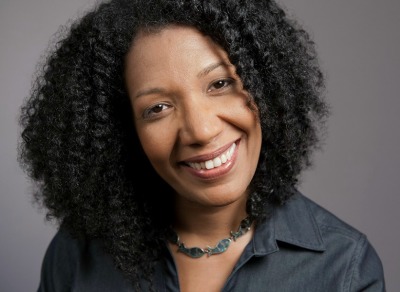#SayHerName: Ain't We Women!?

In 1851, attendees of a feminist convention gathered in a packed hall in Akron, Ohio. It was a time when — even in the midst of a fight for women's rights — mostly men spoke. They talked of dainty women — delicate and deserving of special protection.
Sojourner Truth sat in their midst. Miss Truth sat quiet, listening to men fill space with empty arguments about why women should or should not have the vote. Finally, she rose to speak and a visceral wall of hostility rose from the masses to greet her. The voice of this "n___ger woman" could muddy the message, they hissed. It could conflate the movement for women's equality with the abolitionist movement — and that would be the death of suffrage, they feared.
But, as Dr. King liked to quote, "Truth crushed to earth will rise again."
And so Truth rose, laid her bonnet beside her feet, and spoke the words.
"That man over there says that women need to be helped into carriages and lifted over ditches, and to have the best place everywhere," Truth said.
"Nobody ever helps me into carriages, or over mud puddles, or gives me any best place! And ain't I a woman?"
The answer was yes. Truth was a woman — deserving of every bit of respect and protection that white men afforded to white women. But it never came, because her skin was black.
The white men and women of the suffrage movement would rather have excluded Sojourner Truth and the other black women leaders of the suffragist movement from their ranks than risk a muddied message — a message too complex for simple minds, perhaps; a message too threatening to white power — the intersectional message of black female dignity and the sin against it.
So most Americans have never heard of Margaretta Forten, Harriet Forten Purvis, Sarah Forten, and Mary Ann Shaddy Cary, who wrote, organized, and led organizations from the 1830s through the 1870s dedicated to the causes of abolition and women's suffrage.
Most Americans have never heard of Mary Church Terrell who organized the National Association of Colored Women (NACW) in 1896, with women's suffrage as one of its core commitments.
And, while many Americans know of Ida B. Wells for her anti-lynching campaign, they don't know she also founded the Alpha Suffrage Club in 1913 — the same year that Alice Paul and Lucy Burns founded the Congressional Union for Woman Suffrage (CU) and convened the historic Suffrage March in Washington, D.C.
And even most feminists today don't know that black suffragists were directed to march separately in Paul's parade. Ida B. Wells refused, and slipped into her state's delegation in the middle of the parade. The only reason we know Wells was present that day is because she marched with the white women.
Being erased from the annals of history is commonplace for black women — not only by white men and women, but also by black men. Black women were directed to march separately from the men during the 1963 March on Washington. And only one woman spoke from the podium over the course of an entire day.
Things haven't changed. Since the death of Michael Brown the roll call of black people killed by police has become familiar: #MichaelBrown, #EricGarner, #JohnCrawford, #TamirRice, #WalterScott, #FreddieGray. Too often, the women are missing.
"When you bring women to the narrative, it very much complicates our understanding of what police violence is and actually builds a much more structural-based argument around the problem," Associate director of the African American Policy Forum (AAPF), Rachel Gilmer, told the Huffington Post.
AAPF co-founder, Kimberlé Crenshaw, added:
"To put it simply, if these lives and stories aren't widely recognized, they won't be remembered and police reform will be incomplete."





















